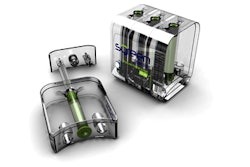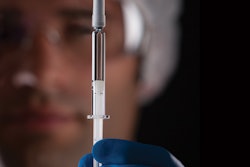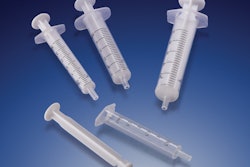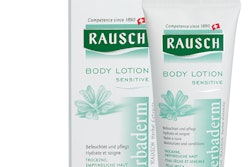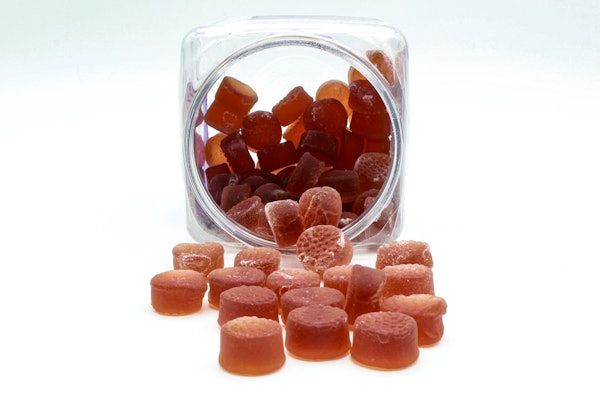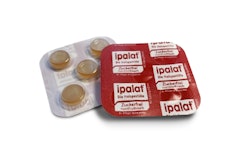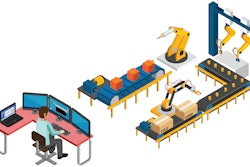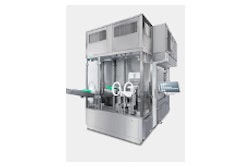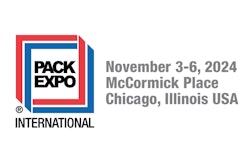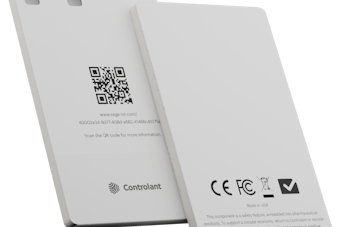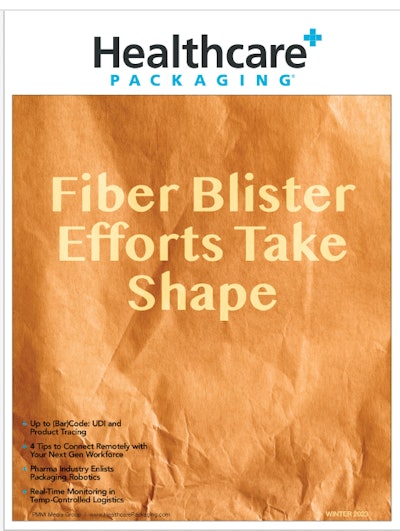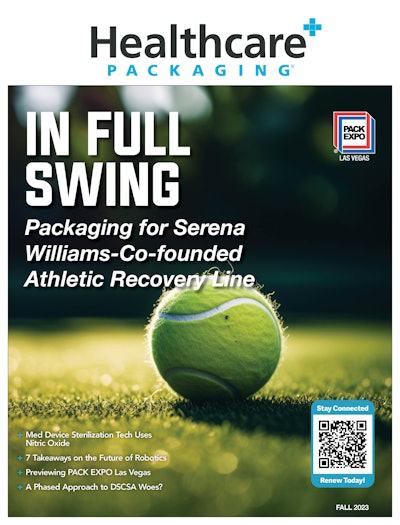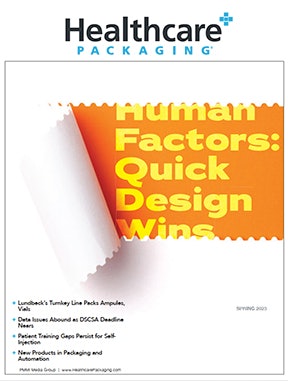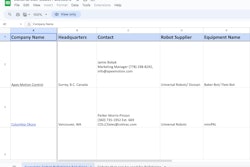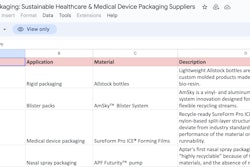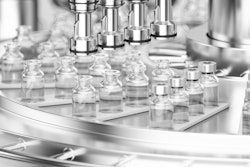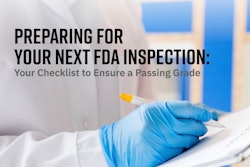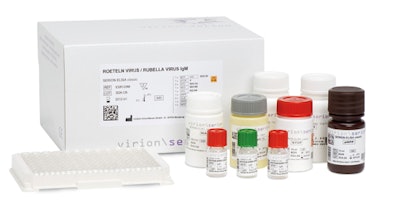
Serion Immundiagnostics & Institut Virion\Serion GmbH is a Würzburg, Germany-based developer of in-vitro diagnostic products and kits. Last year, Virion/Serion became the first firm to use the ImmuCoat system for processing and packaging microplates used in immunoassay diagnostic testing. ImmuCoat meets immunoassay quality and legal requirements, and is a scalable, modular system supplied by Medicon, a division of the Optima Group.
Virion\Serion started in 1978 as a producer and distributor of reagents. Today it is a leading enterprise in the diagnostic industry, developing in-vitro diagnostic kits and products that offer safe detection of infectious diseases and enable effective therapeutic countermeasures.
Among the company's products are microwell plates, a flat plate with wells that serve as small test tubes. These tubes, according to Wikipedia, have “become a standard tool in analytical research and clinical diagnostic testing laboratories. A common usage is in the enzyme-linked immunosorbent assay (ELISA), the basis of most modern medical diagnostic testing in humans and animals.” According to Wikipedia, “an immunoassay is a biochemical test that measures the presence or concentration of a substance in solutions.” Test results help determine treatments for patients with a variety of diseases.
Before production commenced on the ImmuCoat system in early 2010, Institut virion/serion relied on an older plate-coating system, which is still functioning, but is primarily a manual process. Another limitation of that system is the small amount of stacking units (one), the lack of incubation and drying units and the lack of a packaging unit,” says Dr. Judith Stürmer, CEO at Virion\Serion.
She explains that the coating process is a “fairly standard process, however the incorporation of the inline production including the incubation, drying, and packaging will improve dramatically.” Managing the production line process, Stürmer says, “will be improved due to an up-to-date computer control system. Working with the new system is easier in handling as well as more precise with regard to the filling volumes.”
The overall line measures 12 meters (39 ft) in continuous length. Stürmer says the automated in-line process is built up according to several logical steps: coating, incubation, washing, blocking, incubation, drying, and packaging.
Medicon says its ImmuCoat system's basic components are a base frame, a decentralized control of the individual modules, a transport system, and a precision assembly rail onto which the various processing stations are mounted. The machine comes in two variants, optionally with either 6 or 12 processing positions. For this project, initially Virion/Serion purchased the 12-base system. Additionally, to achieve their ideal process, they have purchased three more base units for the inline seamless integration of the incubator/dryer units.
A special benefit of the ImmuCoat line is that all basic modules can be arbitrarily combined and a plug-and-play approach allows easy integration of any individual module. The ImmuCoat process includes the following steps:
• Ninety-six well plates are packed manually in the stacking units.
• Each tab on the breakaway strips of the plate has specific batch information printed on utilizing the vertical ink-jet printing module.
• The wells are filled with an antigen using a 2x8 single-channel dosing module connected to 16 metering pumps (one pump per dosing needle), which starts the coating process. Further along the line, multiple 96-fold manifolds and aspiration systems wash the wells. One additional 96-fold manifold connected to one syringe pump dispenses the blocking solution.
• Automatic fill-level control with a discharge stacker in the event of deficient fill levels.
• After unloading the incubator after 20 hrs, the plates are automatically placed in the stacking units at the front end of the line for removal/aspiration of the coating solution, with plates again washed and aspirated. After passing the last aspiration unit, the plates are bypassed along the incubator in the destacking units.
• Plates dry at defined conditions of temperature and humidity for 24 hrs before they're packed in aluminum bags with desiccants and heat-sealed under vacuum.
By the end of this year, Virion/Serion will automate the entire line process. In addition, three more units will be added to the line, for incubation, drying, and plate packaging. For now, the line runs up to four times per week, eight hours a day, depending on the batch size, which varies between 100 and about 3,000 plates.
Asked why Virion/Serion selected Medicon for the job, Stürmer explains: “The modular concept was the main focus to consider Medicon. Plus the combination of the company's experience in producing similar devices led to our first contact with Medicon. The possibility of being involved in the development of the production line that's ideally configured and adaptable to our requirements was a reason for the collaboration with Medicon. We experienced savings in time, labor, and costs. We have the ability to expand and modify as needed in the future, plus we gain improvements in reliability, quality, and efficiency.”
Click here for a brief video of the ImmuCoat System
Virion\Serion started in 1978 as a producer and distributor of reagents. Today it is a leading enterprise in the diagnostic industry, developing in-vitro diagnostic kits and products that offer safe detection of infectious diseases and enable effective therapeutic countermeasures.
Among the company's products are microwell plates, a flat plate with wells that serve as small test tubes. These tubes, according to Wikipedia, have “become a standard tool in analytical research and clinical diagnostic testing laboratories. A common usage is in the enzyme-linked immunosorbent assay (ELISA), the basis of most modern medical diagnostic testing in humans and animals.” According to Wikipedia, “an immunoassay is a biochemical test that measures the presence or concentration of a substance in solutions.” Test results help determine treatments for patients with a variety of diseases.
Before production commenced on the ImmuCoat system in early 2010, Institut virion/serion relied on an older plate-coating system, which is still functioning, but is primarily a manual process. Another limitation of that system is the small amount of stacking units (one), the lack of incubation and drying units and the lack of a packaging unit,” says Dr. Judith Stürmer, CEO at Virion\Serion.
She explains that the coating process is a “fairly standard process, however the incorporation of the inline production including the incubation, drying, and packaging will improve dramatically.” Managing the production line process, Stürmer says, “will be improved due to an up-to-date computer control system. Working with the new system is easier in handling as well as more precise with regard to the filling volumes.”
The overall line measures 12 meters (39 ft) in continuous length. Stürmer says the automated in-line process is built up according to several logical steps: coating, incubation, washing, blocking, incubation, drying, and packaging.
Medicon says its ImmuCoat system's basic components are a base frame, a decentralized control of the individual modules, a transport system, and a precision assembly rail onto which the various processing stations are mounted. The machine comes in two variants, optionally with either 6 or 12 processing positions. For this project, initially Virion/Serion purchased the 12-base system. Additionally, to achieve their ideal process, they have purchased three more base units for the inline seamless integration of the incubator/dryer units.
A special benefit of the ImmuCoat line is that all basic modules can be arbitrarily combined and a plug-and-play approach allows easy integration of any individual module. The ImmuCoat process includes the following steps:
• Ninety-six well plates are packed manually in the stacking units.
• Each tab on the breakaway strips of the plate has specific batch information printed on utilizing the vertical ink-jet printing module.
• The wells are filled with an antigen using a 2x8 single-channel dosing module connected to 16 metering pumps (one pump per dosing needle), which starts the coating process. Further along the line, multiple 96-fold manifolds and aspiration systems wash the wells. One additional 96-fold manifold connected to one syringe pump dispenses the blocking solution.
• Automatic fill-level control with a discharge stacker in the event of deficient fill levels.
• After unloading the incubator after 20 hrs, the plates are automatically placed in the stacking units at the front end of the line for removal/aspiration of the coating solution, with plates again washed and aspirated. After passing the last aspiration unit, the plates are bypassed along the incubator in the destacking units.
• Plates dry at defined conditions of temperature and humidity for 24 hrs before they're packed in aluminum bags with desiccants and heat-sealed under vacuum.
By the end of this year, Virion/Serion will automate the entire line process. In addition, three more units will be added to the line, for incubation, drying, and plate packaging. For now, the line runs up to four times per week, eight hours a day, depending on the batch size, which varies between 100 and about 3,000 plates.
Asked why Virion/Serion selected Medicon for the job, Stürmer explains: “The modular concept was the main focus to consider Medicon. Plus the combination of the company's experience in producing similar devices led to our first contact with Medicon. The possibility of being involved in the development of the production line that's ideally configured and adaptable to our requirements was a reason for the collaboration with Medicon. We experienced savings in time, labor, and costs. We have the ability to expand and modify as needed in the future, plus we gain improvements in reliability, quality, and efficiency.”
Click here for a brief video of the ImmuCoat System
